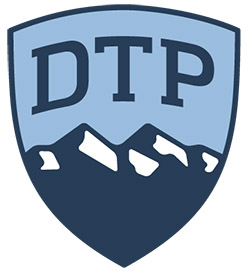Sometimes, even the most intelligent students won’t perform well in school. They might struggle with time management, procrastination, or lack the study skills necessary to demonstrate their knowledge on test days. All of these weaknesses will inevitably come to a head during finals week — the most demanding point of most students’ academic careers.
An academic coach can provide the support system necessary during these most challenging moments. Adam Silver, Denver Test Prep’s resident expert on academic coaching, has met with countless struggling students to guide them through the process of getting organized, studying efficiently, and advocating for themselves. Adam shared his 3 main strategies to implement these skills during finals week and help students ace their exams.
1. Mastering time management
“You’ll need to take stock of your grades to help you prioritize your study time,” Adam explains.
For example, sometimes your grade is at an 85, and even if you get a perfect score on the final, you’ll still have a B in the class. Other times, your grade is on the border, and the final makes all the difference; it can push you up to an A or prevent you from dropping to a C. If you can determine the effect of the final exam on your transcript, you can allocate your time strategically.
Give yourself more time to study for your toughest classes, starting a couple of weeks before finals. Establish a consistent study schedule, and make the most of your study time by placing yourself in a setting that eliminates distractions.
“You have to become self aware of how you work best and what typically distracts you,” Adam says. “Set boundaries for yourself and stick to them.”
2. Studying smarter, not harder
Getting a good grade on a final exam isn’t about spending endless hours staring at a textbook — it’s about using effective study skills to optimize the limited study time you have.
Academic coaching helps students discover that rather than just looking at their notes, they must practice a skill called “forced recall” to commit important information to memory.
Adam explains “forced recall” with a sports analogy: “If you’re a basketball player, and you’re about to go play a big game, you wouldn’t watch a YouTube video of how to play basketball and show up to the game assuming you know what to do. Just reviewing your notes is the equivalent of watching a video to prepare for a game. You have to train to do what’s required of you on test day, and on test day you’ll be forced to recall information.”
Quizzing yourself continuously is the key to implementing this essential set of study skills, always taking note of what material you can or cannot recall.
3. Advocating for yourself
Sometimes, students find themselves falling behind in class, hopeless that they can ever catch up to speed. At times like these, it’s more important than ever to speak up for yourself, identify who will support you, and reach out for help.
An academic coach offers the guidance necessary to help students communicate more effectively with their teachers in these times of need.
“If you know that you’re missing information, you can go up to a teacher and say ‘I’m falling behind – how can I catch up?’” Adam says. “You tell them there’s a problem and you ask for help in solving it. Most teachers want to, and are going to try their best, to help you.”
With the support of both your teachers and your academic coach, finals week can finally become manageable.

